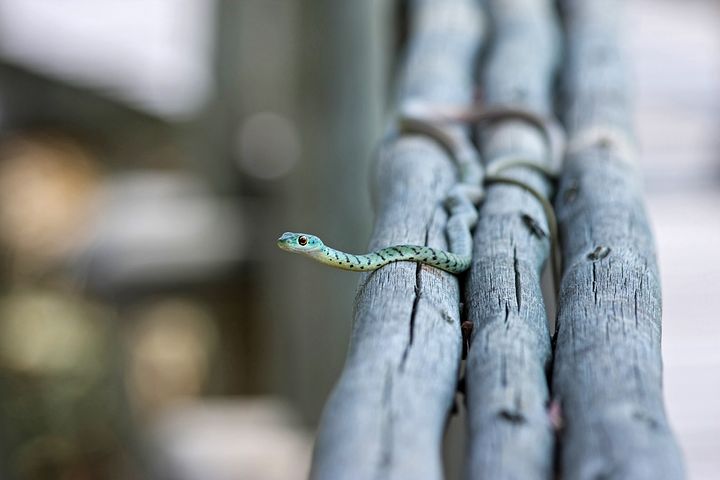Bullying and Working Things Out
 The Bullied
The Bullied
I watched from the pew with my mother as a young boy practiced walking with crutches. The little guy in the right hand corner of the church had new crutches and needed more practice before he mixed in with a crowd of kids. His parents expected him to walk up the aisle on his crutches without assistance when it was time to be dismissed for children’s meeting, and they deliberately arrived early so he could practice. There was no loud applause or boisterous hurrahs. Just smiles and affirmation from their pew, as he progressed up and back the aisle, over and over.
At school, this same fellow learned to go up and down steps by himself. He simply sat down, pushed his crutches to the bottom of the steps, and and scooted down the steps on his rear. Going up, he pushed himself backwards up the steps while someone carried his crutches for him. On field trips when we walked [yes, I said WALKED] a mile or two (or three), he used his wheel chair; no one minded or complained about taking turns pushing the wheelchair so Gary could go along.
The Bully
Little wonder then, that the day he had an encounter with another student on the playground, he handled it by himself. A classmate of his told the story years later with much chagrin.
“I really didn’t believe that he could not walk by himself,” she explained. “I told him so, but he assured me he couldn’t walk or stand without his crutches. I didn’t believe him. He seemed so “normal” otherwise. One day while we were on the playground, I reached out and pushed his crutches away from him to prove to him that he really could walk. Of course, he fell down immediately. I was so ashamed and embarrassed. He calmly reached for his crutches and pulled himself up. Then he said, ‘If you ever do that again, I will tell the teachers.'”
That was all there was to it. The classmate meant no harm; she just didn’t think he was unable to walk because he was normal in every other way. Our teachers treated him the same as any other students, and he expected nothing less.
His parents were raising seven sons, not six sons and a cripple. They expected him to do his part in taking care of himself and show appreciation to those who helped him along the way. Life – and polio – had not been fair. He had survived the disease and six months in a hospital three hours away from his parents when he was just two years old, but the disease left him a cripple.
I’ve thought about that story often when I hear tales of bullying. I know that, in our school, if a student continued to harass another student, there would have been consequences. Not only would the student receive consequences; the parents would be made aware, and the parents would have supported the teacher and the consequence given. No one would have felt sorry for the disciplined student; no excuses would have been made. Is it possible that this is one of the reasons bullying happens as it does today? Are the parents and the teachers not willing to expend the effort to follow through when their kids are out of line? Or do the parents take the side of their child over the teacher’s consequences, thus leaving the teachers handicapped in handling misbehavior?
There is one thing that stands out to me in this story: this second grader knew how to handle conflict, and he wasn’t about to get someone in trouble just because he could. Instead of feeling sorry for himself, he realized his classmate did not understand his paralysis. He gave her the benefit of the doubt and handled it himself without turning to a teacher or his parents. He did, however, have a plan. This gal knew his plan and knew he’d stick to it. If this ever happened again, her teachers and her parents would know. If it ever happened again, she would experience consequences. Between the teachers and her parents, she wouldn’t have a prayer of a chance.
That’s not why she didn’t repeat her action. She realized her mistake and learned something about the effects of her classmate’s illness when he was just two years old.

What to Do?
I don’t have the usual answers about bullying. I know that bullying results in fear and depression for the one who is being bullied. I know it’s more prevalent than many folks realize; and we know that children and adults alike have ended their lives because of bullying. I do think that there are times when kids are being kids and mean no harm, but the mindset of some parents and kids is to call some events bullying when they could be recognized as not intending to be unkind, as was the case with this second grader.
I know bullying happens. There were times when what happened to me as a child could have been considered bullying. I know that kids are mean – sometimes without intending to be. I also realize sometimes kids get on a band wagon without even knowing where the wagon is heading – because of this thing called sin nature. We can help our kids learn to be less sensitive about things that really aren’t as severe as some adults make them out to be.

Having said that, I assure you there isn’t a thing that would have stood in our way to get help if one of our children had been continually bullied. We would have tried to find help for our child and for the bully. The sad part is that people who are hurting are the ones who end up hurting others. The bullied end up becoming a Bully. Do we really understand this?
Perhaps there are some things we can consider as followers of Jesus, especially when someone we know is being bullied.
- Recognize the pain of the bully (as well as, of course, the bullied). It’s quite possible the bully is hurting as much as the bullied. Instead of lashing out first, how about reaching out to him? Jesus said we should pray for our enemies and bless those who curse us. I think bullies fall into that category, don’t you? It’s not easy to bless those who cause us pain, but sometimes that step can make us more aware of their pain and soften the bully’s heart. I’ve seen this happen.
- Return good for evil. Don’t knock it until you try it. Realize that our response can help a bully (as well as us) if we don’t feed the flame. Returning good for evil is one of the hardest things to do. Giving an eye for an eye or a tooth for a tooth only ignites what is already smoldering – tell me it ain’t so!
- Retaliation is not an option. Jesus said that. I didn’t. The true measure of a man comes not in how he treats his friends, but how he treats his enemies. Perhaps instead of feeling sorry for ourselves and becoming depressed, we could turn our attention outward and look for ways to show care for that mean bully. It might just knock the socks off of him. I’ve seen that happen, too.
- Restoration is about Redemption. A bully needs to be restored. Realize that “allowing” a bully to continue to bully can be detrimental to the bully as well as to others. Recognizing this will help us in the choices we make in responding. There are correct steps to take to protect yourself or others if necessary, and to provide redemption for the bully and for yourself. If reporting what a bully is doing in order to protect him and others is necessary, then find the right channels, but do it preemptively.
These ideas are not what most folks would tell us to do. As with any issue in life, we must choose the outcome we want and then take the steps necessary to get us there. If all we want is for the bully to have pay day, then redemption is not our goal. If we want to find healing for ourselves and restoration for the bully, then following these suggestions is a way to go.
Above all else, if we are on Jesus’ team, we need to pray for the bully. It’s one of the best ways to have our hearts become open, and help us change our attitude toward the bully. If we ask God sincerely for wisdom, He will show us what to do. Jesus’ response to the bullies in His life paved the way to the Cross. He showed us how. He makes a way. It is our choice whether or not to follow.








